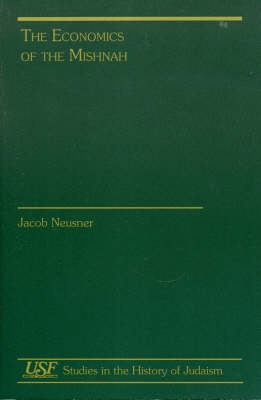In this compelling study, Jacob Neusner argues that economics is an active and generative ingredient of the system of the Mishnah. The Mishnah directly addresses such economic concerns as the value of work, agronomics, currency, commerce and the marketplace, and correct management of labor and of the household. In all its breadth, the Mishnah poses the question of the critical place occupied by the economy in society under God's rule.The Economics of the Mishnah is the first book to examine the place of economic theory generally in the Judaic system of the Mishnah. Jacob Neusner begins by surveying previous work on economics and Judaism, the best known being Werner Sombart's The Jews and Modern Capitalism. The mistaken notion that Jews have had a common economic history has outlived the demise of Sombart's argument, and it is a notion that Neusner overturns before discussing the Mishnaic economics.
Only in Aristotle, Neusner argues, do we find an equal to the Mishnah's accomplishment in engaging economics in the service of a larger systemic statement. Neusner shows that the framers of the Mishnah imagined a distributive economy functioning through the Temple and priesthood, while also legislating for the action of markets. The economics of the Mishnah, then, is to some extent a mixed economy. The dominant, distributive element in this mixed economy, Neusner contends, derives from the belief that the Temple and its designated castes on earth exercise God's claim to the ownership of the holy land. He concludes by considering the implications of the derivation of the Mishnah's economics from the interests of the undercapitalized and overextended farmer.
- ISBN10 0788505068
- ISBN13 9780788505065
- Publish Date 1 January 1999 (first published 23 January 1990)
- Publish Status Active
- Out of Print 7 June 2010
- Publish Country US
- Imprint Scholars Press
- Format Paperback
- Pages 216
- Language English
